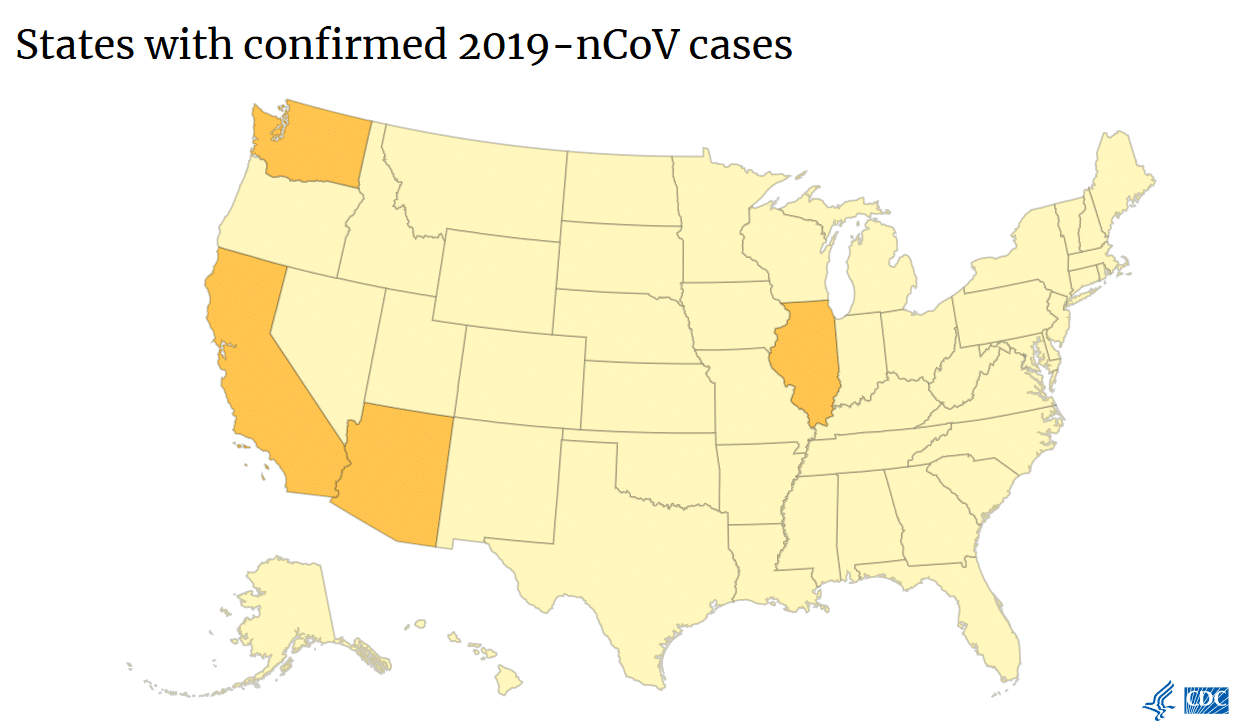Recently, a wave of conflicting information has circulated the mainstream and online media outlets regarding the recent outbreak of the novel coronavirus originating in Wuhan, China, much of which is based on far-reaching speculation.

The Facts Regarding the Coronavirus Outbreak
The recent news regarding the novel coronavirus--2019-nCoV--has bordered on the hysterical, with reports deviating significantly from facts cited in their own articles.
Take, for example, a January 27th article published by NBC News.
Meanwhile, the number of suspected cases in the United States has been growing rapidly.
So far, about 100 samples from 26 states have been sent to the CDC for testing.
Five have tested positive and 25 have tested negative; the rest are pending.
The first confirmed case of 2019 nCoV was January 15th, 2020.
The U.S. Centers for Disease Control and Prevention (CDC) and the U.S. Department of Homeland Security’s Customs and Border Protection (DHS) implemented stringent screening polices at three U.S. airports--LAX, JFK, and SFO--on January 17th, 2020.
In the following twelve days, four cases have been confirmed, all of which were isolated and none of whom have died.
Per the CDC's Risk Assessment;
While CDC considers this is a very serious public health threat, based on current information, the immediate health risk from 2019-nCoV to the general American public is considered low at this time.
Nevertheless, CDC is taking proactive preparedness precautions.
Coronavirus Transmission
Coronaviruses are typically spread:
- Through the air via coughing or sneezing.
- By direct contact with an infected person or surface, or, though rarely;
- Via contaminated fecal consumption.
The 2019 nCoV virus appears to have jumped species, though its origins are currently unclear, from an animal to a human in a local market in Wuhan, China.
Originally, it was believed that the virus had not evolved to spread from human-to-human, but that no longer appears to be the case, and is the likely cause of much of the recent hysteria.
According to the CDC;
China health officials report that most of the patients infected with 2019-nCoV have had exposure to a large market where live animals were present, suggesting this is a novel virus that has jumped the species barrier to infect people.
Chinese authorities additionally report that several hundred health care workers caring for outbreak patients are being monitored and no spread of this virus from patients to health care workers has been seen.
They report no sustained spread of this virus in the community, however, there are indications that some limited person-to-person spread may have occurred.
CDC is responding to this outbreak out of an abundance of caution, ready to detect people infected with 2019-CoV.
Public Health Screening to Begin at 3 U.S. Airports for 2019 Novel Coronavirus (“2019-nCoV”)
Coronavirus Symptoms
Symptoms of coronavirus typically resemble those of the common cold or influenza and include:
- A runny nose.
- A headache.
- A cough.
- A sore throat.
- Fever, and;
- General body aches, pains, and lethargy.
The illness is typically short-lived, but can on occasion result in lower respiratory issues, such as pneumonia or bronchitis in certain individuals, especially those suffering from:
- Cardiopulmonary Disease (CPD).
- Children.
- The elderly, and;
- Those with previously weakened immune systems.
Prevention & Treatment
Preventing the spread of, and treating for the 2019 nCoV novel coronavirus is the same as any other pathogen outbreak.
- Follow the CDC's 5-step handwashing guidelines.
- Use hand sanitizer after washing and drying your hands.
- Follow common sense hand awareness and avoid touching your eyes, nose, and mouth with unwashed hands, especially in public or other high-risk areas.
- Avoid contact with sick people as much as possible.
- If you're sick, stay home and avoid contact with others as much as possible.
- Cover your mouth and nose when you cough or sneeze.
- Implement high-performance cleaning and infection prevention and control policies in your facility.
- Seek medical attention immediately if you believe you have contracted the virus or if you believe you have come into contact with someone who is infected.
References & Resources
- First Case Of Coronavirus Confirmed In The U.S.
- U.S. Government Tracking Disease’s Spread From China
- About Coronaviruses--Symptoms and Diagnosis
- About Coronaviruses--Transmission
- About Cornoaviruses--Prevention and Treatment
Takeaway
While the 2019 nCoV novel coronavirus has dealt a considerable blow to the Hubei province in China, it has had relatively little impact on the U.S. population and will likely remain that way as long as strict guidelines are followed.
The 2019 nCoV virus does not appear to possess any unique or special quality mandating specialized cleaning practices be implemented, but it is a good reminder of why advanced cleaning practices, such as no-touch, electrostatic disinfection, cross-contamination prevention, and hotspot disinfection practices should be implemented.
Combined with recommended hand hygiene and awareness programs, the virus should have relatively little impact on a prepared and healthy population.
Contact us today and discover why Vanguard Cleaning Systems® is the Standard of Clean® for businesses throughout Northwest Arkansas, Missouri, and Oklahoma.
In Oklahoma, dial 918-960-4450
In Arkansas, dial 479-717-2410
In Missouri, dial 417-812-9777



You must be logged in to post a comment.